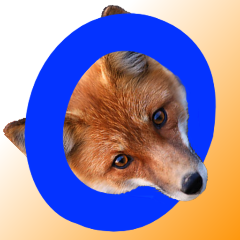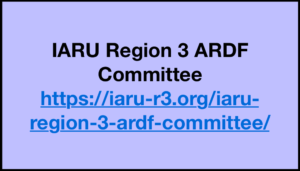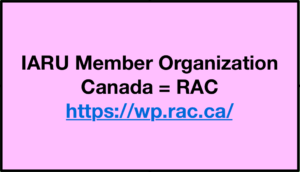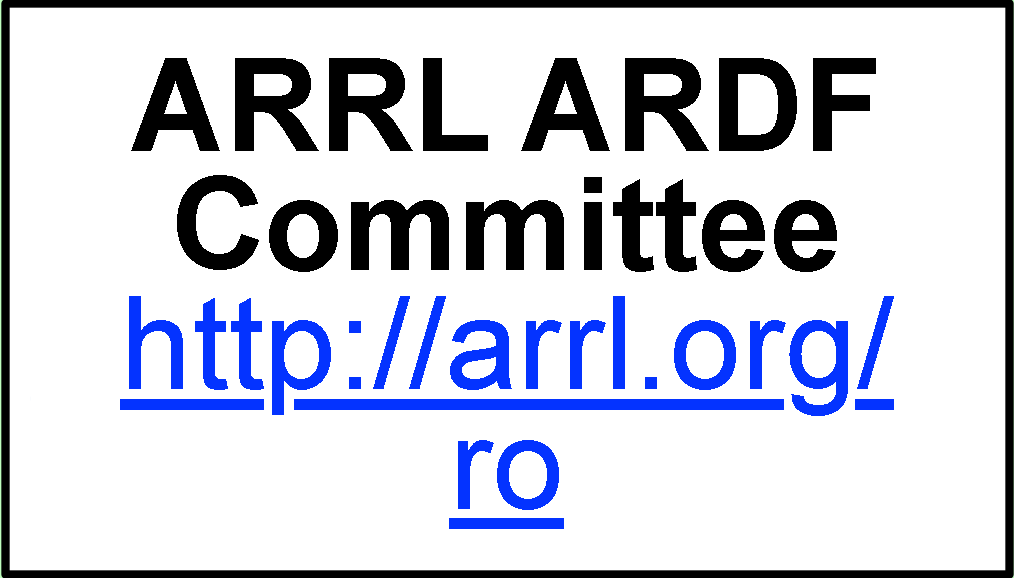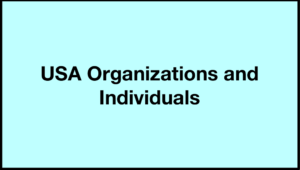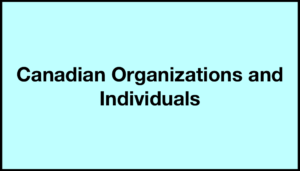This is an update to a blog entry originally posted in July 2018.
Below is a diagram depicting the current way that ARDF is administered with a focus on Region 2. The diagram shows all the entities responsible for how ARDF is defined, practiced, and promoted in IARU Region 2. The lines between the various entities imply the type of relationship or interaction between them.
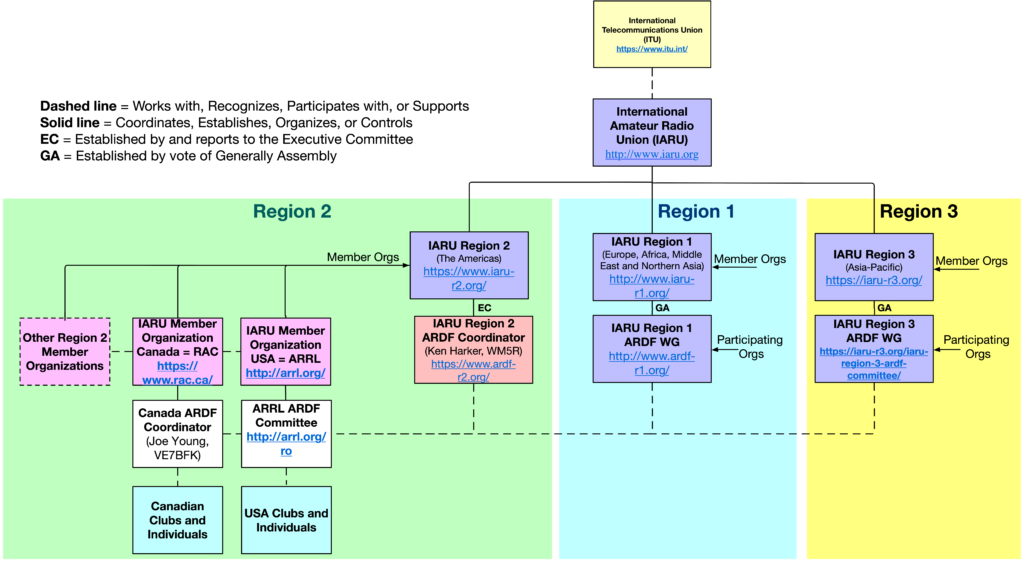
The intent of the diagram is to depict the current ARDF-related entities and their relationships to one another diagrammatically. Their roles and responsibilities are discussed below.
ITU & IARU
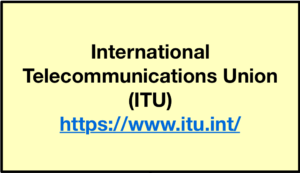
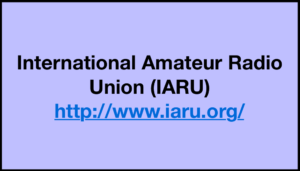
If we focus on the sport of ARDF, the ITU and the top level of the IARU have no direct influence on the sport. Radio sports are not specifically mentioned in their constitutions or bylaws and are not managed at that level. The ITU and IARU are included in the diagram only to complete the “big picture.”
IARU Regions
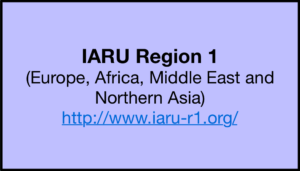
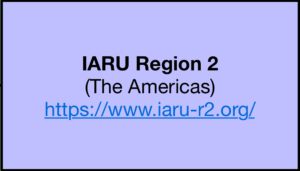
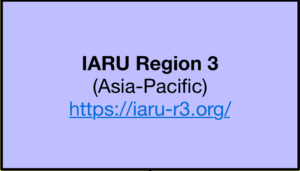
IARU Regions are autonomous and operate in accordance with their own Constitutions. Their members are comprised of national societies representing each region’s member countries. See ARRL IARU.
The IARU regional organizations are at the top of the ARDF hierarchy, in that they have responsibility for defining, supporting, and managing the sport. Having three autonomous organizations all managing ARDF from the top could lead to divergence in how the sport is played and organized around the world. Such divergence could be beneficial by allowing the regions to customize ARDF to maximize interest among their member societies. But too much divergence would be detrimental if it were to result in three separate incompatible sports. Fortunately, the regions have insisted on making inter-regional coordination a priority.
IARU regional organizations are not obligated to recognize ARDF at all. The autonomous regions are free to address the needs of their regional membership as appropriate to fulfill their missions. If ARDF plays an insignificant role in a particular region, and the member societies consider it unimportant, a region need not support it at all. That was the case in IARU Region 2 until the year 2001.
In September 2001 IARU Region 2 approved Standard Operating Procedures (SOP) that recognized the sport of ARDF in the region:
ARDF, the activity. Amateur Radio Direction Finding is a technical, sport activity within the framework of the amateur radio service. It deals with the taking of radio bearings and finding hidden transmitters, constructing direction-finding equipment, and the training of amateurs involved in and with the organizing of relevant sport and social events.
IARU Region 2 ARDF Coordinator
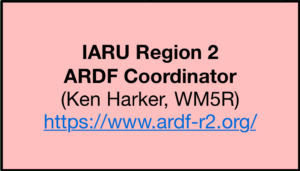
In the same September 2001 Standard Operating Procedures, IARU Region 2 defined a new role: IARU Region 2 ARDF Coordinator. That role was created as a “special advisory committee” by the Executive Committee (EC) and reports directly to the EC.
The first person appointed to the new position was Dale Hunt, WB6BYU, who held the position until August 2018, when he retired. Replacing him was Kenneth Harker, WM5R, who currently holds the position.
The Region 2 ARDF Coordinator was assigned duties related to investigating the popularity of the sport in the region, keeping track of ARDF activities in the other regions, and reporting back to the Executive Committee with findings and recommendations:
ARDF Coordinator Duties.
(a) The Region 2 ARDF Coordinator shall become aware of, and shall encourage and support, ARDF activities within Region 2 and shall report on such activities from time to time to the Region 2 Executive Committee.
(b) The Region 2 ARDF Coordinator shall, in general, be aware of ARDF activities in IARU regions 1 and 3 and shall report on such activities from time to time to the Region 2 Executive Committee. The Region 2 ARDF Coordinator shall also cooperate with the ARDF coordinators from Regions 1 and 3 for the purpose of promoting ARDF activities worldwide.
(c) The Region 2 ARDF Coordinator shall make any such recommendations as are reasonably necessary and appropriate to the Region 2 Executive Committee to promote ARDF activities within Region 2.
ARDF Working Group
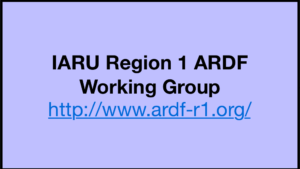
The creation of an IARU Region 2 ARDF Coordinator position was a significant step forward, but still left ARDF’s stature in Region 2 in a very different state from other regions. IARU Regions 1 and 3, where ARDF is more established and widespread, have established ARDF working groups by resolutions passed by the Member Societies at regional General Assemblies (GA).
The responsibilities of those groups are described by IARU Region 1 ARDF Working Group to include:
1. To disseminate information related to ARDF.
2. To develop ARDF materials and answer questions from other IARU bodies.
3. To provide ARDF advice and help to IARU Member Societies, to prepare bulletins and educational material, to assist the IARU Regional Member Societies in ARDF activities.
4. To submit ARDF advice, proposals, and recommendations to the Executive Committee.
5. To participate in the organization of IARU ARDF events.
6. To undertake ARDF activities on behalf of the IARU Region.
7. To organize IARU international events and championships.
8. To support sport and technical progress in ARDF.
9. To prepare the ARDF competition rules.
10. To provide for skilled referees serving at International, Regional and World Championships.
11. To cooperate with similar bodies in other IARU regions that promote and administer the sport, helping promulgate and standardize the sport throughout the regions, and coordinating ARDF activities between the regions.
The disparity between Region 2 and the other regions regarding their support for ARDF remains. Unless the Region 2 Organization can be persuaded otherwise, this situation might not change so long as the sport is isolated to only a few Region 2 countries.
Without an entity tasked with administering the sport at the regional level, the responsibilities above are not officially supported by Region 2. Instead, ARDF coordination and administrative responsibilities fall to the member societies and individuals, where they are addressed on an ad hoc basis if they are addressed at all.
The creation of a Permanent ARDF Working Group for Region 2 would require the passage of establishment legislation (a resolution) at a Region 2 General Assembly. Region 2 General Assemblies are triennial events, with the next one scheduled to occur in 2025 in Ecuador and will be hosted by the Guayaquil Radio Club. A resolution to create a Region 2 ARDF Working Group would need to be sponsored by one or more Region 2 Member Societies.
IARU Member Organizations (Member Societies)
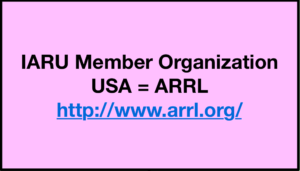
The members of the IARU Regional organizations are those societies of radio amateurs situated within Region 2 that are members of the International Amateur Radio Union. The IARU Constitution states that there shall be only one Member-Society representing a country or separate territory.
Radio Amateurs of Canada (RAC) is the member organization representing Canada.
The American Radio Relay League (ARRL) is the member organization representing the USA. The ARRL is a member of IARU Region 3 as well as Region 2 because it represents the radio amateurs of Guam, the Northern Marianas and American Samoa which are located in Region 3.
In Regions 1 and 3 where ARDF is the responsibility of working groups comprised of representatives appointed by member societies, those member societies retain at least the following ARDF-related responsibilities:
1. Maintain their full membership in a regional IARU organization.
2. Assign a society representative to the ARDF Permanent Working Committee or Working Group.
3. Delegate single competitors or teams to participate in intra-regional competitions.
4. When authorized by its corresponding IARU regional organization it may organize a World Championship.
5. When authorized by its corresponding IARU regional organization it may organize a Regional Championship. A Regional ARDF Championship is the event to award the title of Regional Champion in ARDF.
In Region 2, there are no specific ARDF responsibilities nor authority assigned to the member societies. So the ARRL is able to exercise the authority afforded by other regions to member societies from outside those regions. Within the borders of the USA, the ARRL is authorized and constrained by its own Articles of Association, Bylaws, and internal policies, and by a desire to best serve its membership and cooperate with its fellow societies within and outside Region 2.
ARRL ARDF Committee
In July 2019 the ARRL Board of Directors established the ARRL ARDF Committee. Gerald Boyd, WB8WFK and Charles Scharlau, NZØI, were appointed by ARRL President Rick Roderick, K5UR, to serve as USA ARDF Co-coordinators. Jerry and Charles recruited and nominated a team of ARDF experts to serve on the new committee. The ARRL ARDF Committee selects the national team, works to ensure USA radio orienteering championship events are held annually and serves to promote the sport domestically.
According to its Terms of Reference, the purpose of the ARRL ARDF Committee is: “to fulfill, in the name of the ARRL, those responsibilities assigned to IARU member societies that participate in Amateur Radio Direction Finding as administered by the IARU regional organizations. Those responsibilities include assigning a society representative to represent the League in an IARU regional ARDF administrative committee or working group, and delegating single competitors or teams to participate in international competitions. When authorized by its corresponding IARU regional organization a member society may organize a World or Regional Championship.”
Local Organizations and Individuals
The folks participating in ARDF activities, and the clubs and groups that directly support them, are the grassroots of the sport. Collectively, they hold ultimate control over the sport, for without them there would be no ARDF activity to manage.
Though their number remains relatively small, ARDF enthusiasts in Region 2 include enough individual talent to fix all that ails ARDF. But it is up to the grassroots to insist on leadership and organization that will utilize that talent to make ARDF prosper.
If you can help complete or correct the information presented above, please let me know. Although I’ve attempted to make it accurate, it might contain errors or omissions. Please let me know if you are aware of changes that should be made, or if you have suggestions for making it more clear and understandable.
